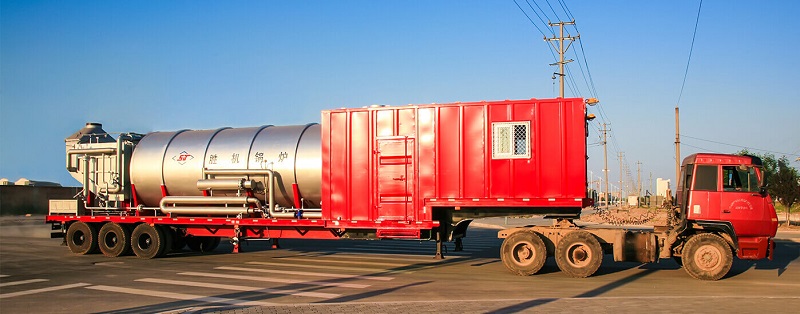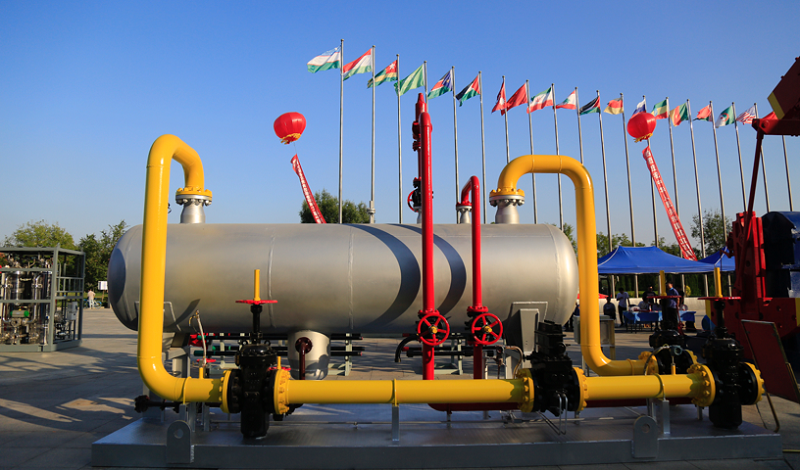The Heart of Energy: The Role of Boilers in the Oil and Gas Industry
In the vast tapestry of the oil and gas industry, one essential component stands out as the unassuming yet pivotal workhorse that drives operations: the boiler. These mechanical marvels play a critical role in a wide array of processes, from powering drilling rigs and refining operations to maintaining optimal conditions in petrochemical plants. This essay delves into the significance, types, functions, and advancements of boilers within the oil and gas industry.

History of Boilers:
The historical roots of boilers in the oil and gas industry trace back to the early days of industrialization and the quest for efficient energy sources. The evolution of boilers is intertwined with the rapid growth of the oil and gas industry, as they became indispensable tools for extracting, refining, and utilizing hydrocarbon resources.
The industrial revolution of the 18th and 19th centuries marked a transformative period in human history, characterized by the shift from agrarian economies to industrialized societies. Steam power emerged as a revolutionary energy source during this time, enabling factories, mills, and other industrial processes to operate on a grand scale. The invention of the steam engine by James Watt in the late 18th century laid the groundwork for the widespread adoption of steam technology, and boilers played a central role in harnessing this energy.
The early boiler designs were rudimentary compared to today’s advanced technologies. Simple fire-tube boilers consisted of a cylindrical vessel with tubes running through it. Water was heated within the tubes, and the resulting steam was used to power engines and machinery. This marked the beginning of the symbiotic relationship between boilers and the oil and gas industry, as steam power was employed in various stages of production, including pumping oil and running drilling operations.
The Significance of Boilers:
Boilers are at the heart of energy production and distribution in the oil and gas industry. They are the vessels responsible for converting water into steam through the application of heat. This steam, in turn, powers a multitude of processes, ranging from electricity generation to driving turbines, as well as providing the heat necessary for various refining and petrochemical operations.
Types of Boilers:
The oil and gas industry utilizes several types of boilers, each tailored to specific operational requirements. These include:
1. Fire-Tube Boilers: This traditional type of boiler features tubes that contain water, with hot gases from combustion passing through these tubes to heat the water. Fire-tube boilers are known for their simplicity and suitability for lower-pressure applications.
2. Water-Tube Boilers: In contrast to fire-tube boilers, water-tube boilers have tubes containing water and hot gases passing around these tubes. These boilers offer higher efficiency, greater capacity, and the ability to handle higher pressures, making them well-suited for heavy-duty applications in the oil and gas industry.
3. Industrial Watertube Boilers: These boilers are a subset of water-tube boilers, optimized for industrial settings. They provide higher steam capacities and greater flexibility in terms of fuel options, making them versatile choices for oil and gas operations.
Functions of Boilers in the Oil and Gas Industry:
Boilers serve a plethora of crucial functions within the oil and gas industry:
1. Steam Generation for Power and Heat: Boilers are responsible for generating steam that powers turbines, which in turn generate electricity for a variety of operations within the industry. Additionally, the steam produced by boilers provides the heat required for various refining processes and petrochemical operations.
2. Enhanced Oil Recovery: In the extraction of oil, steam injection can be used as an Enhanced Oil Recovery (EOR) technique. Steam injected into reservoirs helps reduce the viscosity of heavy oil, allowing it to flow more freely and facilitating its extraction.
3. Heating for Pipelines and Facilities: Boilers play a crucial role in maintaining optimal conditions for pipelines and facilities. They provide the heat necessary for preventing the freezing of fluids and maintaining operational efficiency during cold weather.
4. Hydrogen Production: Hydrogen, an important feedstock in the petrochemical industry, can be produced through the steam methane reforming process, which requires boilers to generate the high-temperature steam needed for the reaction.

Advancements and Innovations:
As the oil and gas industry evolves, so do the technologies associated with boilers. Advancements and innovations are continually shaping the efficiency, safety, and environmental impact of these critical components:
1. Efficiency Improvements: Increasing boiler efficiency remains a priority. Innovations in heat recovery systems, such as economizers and condensing heat exchangers, enable the capture of waste heat to preheat feedwater or other fluids, enhancing overall efficiency.
2. Emissions Reduction: The industry’s focus on environmental sustainability has led to the development of low-emission burners and combustion controls that help reduce the release of pollutants and greenhouse gases during the combustion process.
3. Digitalization and Monitoring: Boiler systems are becoming increasingly connected through the Internet of Things (IoT), enabling real-time monitoring, data analysis, and predictive maintenance. These advancements contribute to improved safety, operational efficiency, and downtime prevention.
4. Alternative Fuels: The exploration of alternative fuels, such as natural gas and hydrogen, as well as the integration of renewable energy sources like solar and biomass, is shaping the future of boiler operations in the oil and gas industry.
Conclusion:
In the intricate tapestry of the oil and gas industry, boilers emerge as unsung heroes, providing the essential energy source that drives operations forward. From steam generation and electricity production to maintaining optimal conditions in refineries and petrochemical plants, boilers are the beating heart of energy within the industry. As advancements continue to reshape the landscape of energy production, boilers remain steadfast in their pivotal role, evolving to meet the challenges of efficiency, sustainability, and technological innovation. In the symbiotic relationship between machinery and human ingenuity, boilers exemplify the fusion of tradition and progress that fuels the journey towards a more sustainable and efficient oil and gas industry.

 By Sun
By Sun

